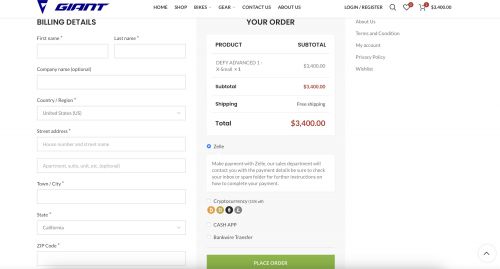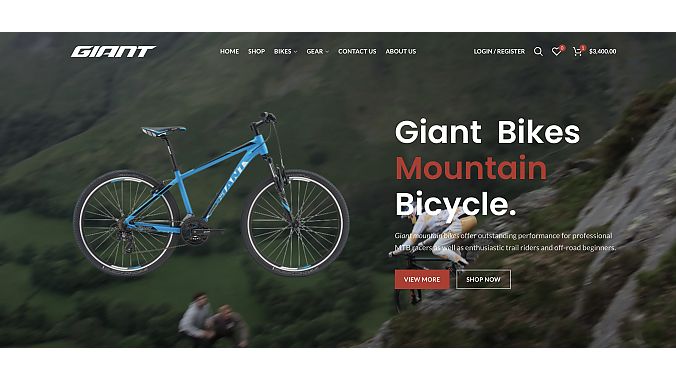NEWBURY PARK, Calif. (BRAIN) — Giant Bicycles says it is aware of a fraudulent website mimicking its U.S. domain and has started the process of eliminating it by notifying the Federal Trade Commission, which investigates online scams in the U.S., and the brand's global legal team in Taiwan.
Allen Needle, Giant's risk manager, told BRAIN on Friday retailers also will be notified through its sales team and a bulletin posted on the brand's B2B portal, G Store.
He said he's not aware of any consumers affected, "but I can’t be sure that no consumer has been affected.
"It has an effect on our brand and reputation, so even if someone hasn't put out their cash for this, it is something we take very seriously. This is a problem for the entire industry. Everybody faces some level of this."
He reminds retailers to always share any information on suspicious websites with Giant.
While he doesn't know where the website originated from, in the past he said they have usually come from Indonesia, the Philippines, or China. Getting the site taken down could require some time, firstly finding out where it's originating from.
"I've looked at the URL to try to understand the registration, and it's really challenging on this particular one," he said. "I believe it's from outside of the U.S., but I don't have hard data."
Even getting it taken down doesn't necessarily end the problem.
"When you knock one site down, they pop up somewhere else," Needle said. "This is a game of whack a mole. The way you can control this is by constantly hitting them as fast as you can."
Awareness remains the key to not getting scammed by a site such as this, Needle said. And the truism of if the deal seems too good to be true, it probably is, should be the first clue.
"These websites usually don't have a good flow and don't work very well," he said.
On this particular website, the key tip-offs are the payment methods: Zelle, cryptocurrency, cash app, or "bankwire" transfer. No credit card option is listed.
Needle shared other ways to tell if a website is legitimate:
- Contact information: A reputable website always will provide valid contact information, including a physical address and customer support details. Customers should be cautious if this information is missing or incomplete. Gmail, Hotmail, and Yahoo email addresses are red flags if used in the website's Contact Us section.
- URL verification: Always double-check the website's URL for any discrepancies or misspellings. Scammers often use slightly altered URLs to imitate legitimate sites.
- Secure connection: Legitimate websites use "https://" at the beginning of their URLs, indicating a secure connection. Customers should avoid websites that lack this secure indicator.
- Professional design: Legitimate websites invest in professional design and user experience. Poor design, broken links, and inconsistent branding might signal a fraudulent site. Fake sites are sometimes direct ripoffs from Giant's site, so the look might appear legitimate.
- Payment methods: Only use secure and reputable payment methods.
- Customer reviews: Check for authentic customer reviews and ratings. Be skeptical if all reviews are overly positive or if there are no reviews at all.
- Privacy policy and terms: Genuine websites have clear privacy policies and terms of service. Their absence or poorly written versions are red flags.
"With awareness comes the ability to differentiate between a fraudulent website and legitimate sites," Needle said.
In the past year, fraudulent websites have been reported by Shimano, SRAM, Chris King, FSA and Vision, and one selling products from Cane Creek Cycling Components, Wolf Tooth Components, and Whisky Parts Co. at discounted prices.




